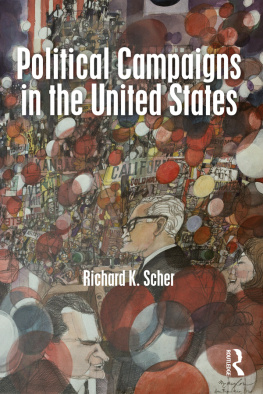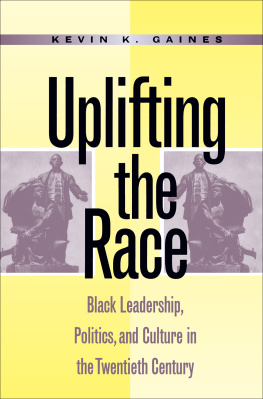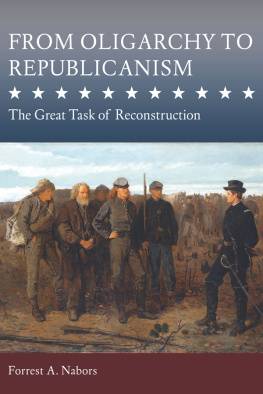First published 1997 by M.E. Sharpe
Published 2015 by Routledge
by 2 Park Square, Milton Park, Abingdon, Oxon OX14 4RN
711 Third Avenue, New York, NY 10017, USA
Routledge is an imprint of the Taylor & Francis Group, an informa business
Copyright 1997 Taylor & Francis. All rights reserved.
No part of this book may be reprinted or reproduced or utilised in any form or by any electronic, mechanical, or other means, now known or hereafter invented, including photocopying and recording, or in any information storage or retrieval system, without permission in writing from the publishers.
Notices
No responsibility is assumed by the publisher for any injury and/or damage to persons or property as a matter of products liability, negligence or otherwise, or from any use of operation of any methods, products, instructions or ideas contained in the material herein.
Practitioners and researchers must always rely on their own experience and knowledge in evaluating and using any information, methods, compounds, or experiments described herein. In using such information or methods they should be mindful of their own safety and the safety of others, including parties for whom they have a professional responsibility.
Product or corporate names may be trademarks or registered trademarks, and are used only for identification and explanation without intent to infringe.
Library of Congress Cataloging-in-Publication Data
Scher, Richard K.
Politics in the new South : republicanism, race, and
leadership in the twentieth century / by Richard K. Scher.2nd ed.
p. cm.
Includes bibliographical references and index.
ISBN 1-56324-847-6 (c: alk. paper).
ISBN 1-56324-848-4 (p: alk. paper)
1. Southern StatesPolitics and government18651950.
2. Southern StatesPolitics and government1951
I. Title
F215.S34 1997
320.975dc20 9630362
CIP
ISBN 13: 9781563248481 (pbk)
ISBN 13: 9781563248474 (hbk)
Like so many other books written by academicians, this one grew out of the classroom. A transplanted New Yorker, I knew little of the South when I arrived in Florida more than twenty years ago. What I thought I knew was not especially pleasing. In many respects I had a traditional easterners view of the South and things southern, that is, detached and slightly superior. Even eight years as a schoolboy in Houston did little to shape my views into more sympathetic ones. And they were altogether reinforced during the civil rights movement, which occurred while I was a college student in New York, and in which I participated in a modest way.
But when I settled in Gainesville, it rapidly became apparent to me that my preconceived ideas were wrong. Not that Gainesville was typical of the South; university communities are seldom typical of anything. Having an interest in state and local affairs and politics, I immediately began to observe, study, read about, discuss, and even involve myself in southern politics.
I was delighted with what I found. Here was a style and rhythm and substance of politics unlike anything I knew about; it could not have been more different from New York City and State, with which I was already familiar. True, much of it seemed baroque, deceptive, anachronistic, quaint, silly, even crazy. Issues were cloaked under clouds of smoke and magnolia blossoms, distorted by mirrors, and overlaid by history and myths. People kept talking about tradition, place, time, and family as if they were real and as if they were a legitimate part of political life. They were. I just had to discover how they fit together.
Fortunately, I had two professionally rewarding experiences that got me on the right track for understanding and appreciating southern politics. One was my first chair, the inimitable (and indomitable) Manning J. Dauer. He took me under his wing, and seemed to want to make me his southern project. He succeeded. Under his tutelage and guidance I learned, and worked, and talked, and read, and wrote, and discussed, and worked, and read some more. He was an extraordinary mentor; without him, I would have become neither interested in nor aware and appreciative of the breadth, depth, and richness of southern politics.
The other experience was to meet two young academicians at my own stage of professional life: David Colburn, a historian from New England by way of the University of North Carolina at Chapel Hill; and James W. Button, political scientist, an upstate New Yorker who had lived in California and Texas. Neither of these other two gentlemen knew much about southern politics either. But we became interested together, and with each of them I engaged in major research. We learned togetherto enjoy, to criticize, to analyze, to evaluate, to understand, to appreciate. I hope they learned half as much from me as I did from them.
Anyway, back to the classroom. By the late 1970s, Manning Dauer thought I was ready; that is, he felt I had learned enough to have advanced beyond the ignoramus stage and thought I was even asking some important questions. He asked me to prepare and teach a course on southern politics, aimed primarily at third- and fourth-year political science majors and a smattering of graduate students but broad enough to appeal to students from other departments and colleges. The first few semesters were rocky. Im sure students in the initial classes wondered what this was all about. I certainly did. There is no question that I learned as much from the students, especially the native southerners in the classes, as they did from me.
Eventually, however, the course found its measure, and I am happy that it has. It has proven exceptionally popular. I always look forward to teaching it. But the longer I taught the course, the more obvious it became that a book of the type I have written seemed necessary, not just for students but for other individuals as well.
There is no shortage of writings on the South or on southern politics and public affairs. The extensive sources cited in this book are just a fraction, albeit a representative one, of the major available writings. But the problem, it seemed to me, was twofold. First, students of todays generation know little of the traditional South. They have heard of it, of course, but their actual knowledge is very limited. They may also be aware of something called the new South, with its new southern politics; certainly they are barraged by the terms in the media during every election season. But they have very little idea what the new South and new southern politics really are. Just as important, they dont know where they came from, what it took to get from there to here, and what is the relationship between the old and the new. In short, they know little of historical perspective or political evolution.
The problem is not limited to students. For many people, traditional southern ways, including politics, are an increasingly dim memory. Even the civil rights movement seems remote. Pictures of Martin Luther King Jr.s civil rights campaign in Birmingham, Alabama, in 1963, which I recently showed an audience, were thought to be from another country. Did that actually happen here, some asked? And what was so important about King and what he did, anyway?
It is a major theme of this book that the reality of the political past must be kept alive. Not to glorify or mythologize itsoutherners have done too much of that already. But it is important for todays citizensstudents and those outside the academyto be aware of and sensitive to the past. Much of what happened in traditional southern politics is neither pleasant nor commendable. But if we want to know about the new South and new southern politics, we had better understand fully what life, and politics, used to be like in this region.












